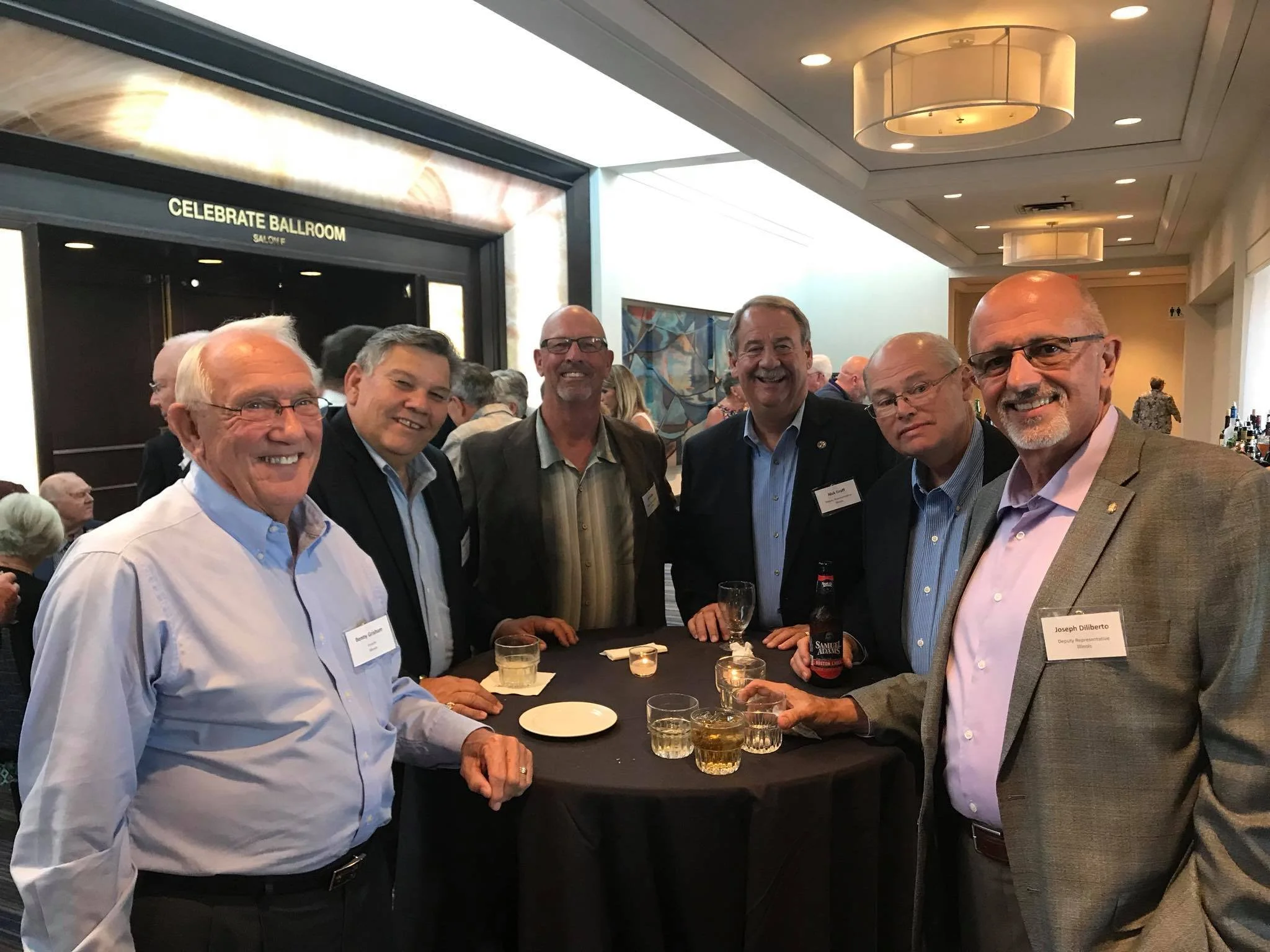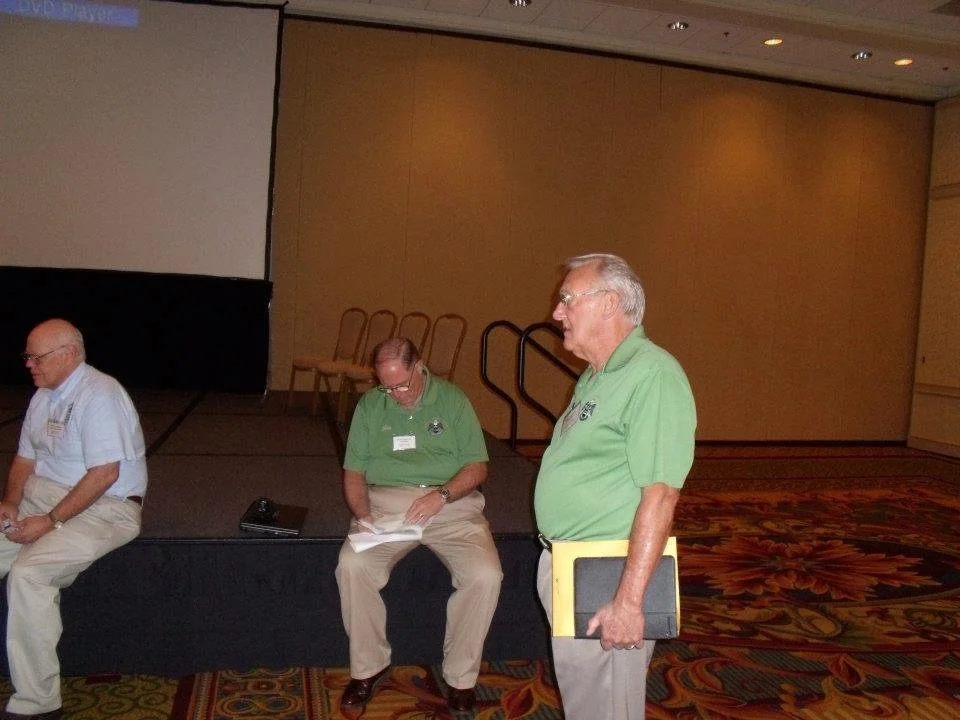A Conversation with Past Grand Master Grisham
History and tradition are integral parts of Freemasonry. Reverence for our past and the great men who have made up our fraternity is a big part of how we have endured and thrived for generations. Part of being an Illinois Freemason is accepting men from all walks of life who demonstrate upright conduct. We teach the precepts of equality, charity, tolerance, fellowship, and brotherly love among our members.
Past Grand Master of Illinois Benny Grisham is an outstanding example of these values. For nearly 60 years, he has been a proud Illinois Freemason and has undoubtedly left his mark on our great fraternity. In our wide-ranging conversation, he discussed how he came to the craft, what his time was like as Grand Master, and shared his advice for current and future Masonic leaders.
Could you please share a bit about yourself and your time as a Freemason?
Brother Ben Grisham, Past Grand Master of Illinois
Freemasonry has been a big part of my life forever. I was raised in Springfield, Illinois, in 1966, have been a member of the Scottish Rite, Northern Masonic Jurisdiction, and was the Grand Master of Illinois. My dad and grandfather on my mother’s side were Masons, but neither was too active.
There was almost no connection with them as far as deciding to join. I decided to join myself. When I started the process of becoming a Master Mason, I and two other men were working together to join. After six months, I was raised to Master Mason!
What are you most proud of from your time as Grand Master?
I would say the recognition of Prince Hall Masons in Illinois. That had never been done in our state, and I started working on that immediately after I became Grand Master.
Every Grand Master has a reception just after he is elected, and I invited the Prince Hall Grand Master to mine, which began the connection between us. Before I was elected in 1996, several Grand Masters before me had mentioned recognizing Prince Hall but never could get consensus from the membership.
It was almost a surprise to the Grand Lodge voters when it was brought up, which we did intentionally. A motion was made on the floor to get it done, and although there was some opposition when the vote was taken, it wasn’t a problem. I believed at the time that it was the right thing to do, and during the voting, it wasn’t even close - everyone seemed to agree with me.
Brother Ben Grisham with other members of Illinois Freemasonry leadership
Another thing I was proud of was changing the focus of the Grand Lodge. Before I was Grand Master, it was like each GM altered the direction of the Grand Lodge; each person had a new mission each term. During my tenure, I decided, along with the fellow behind me in the Grand Lodge line, that it would be a democratic process, and we would continue whatever the GM ahead of you started. So, we changed the whole direction of the Grand Lodge in that the new Grand Master no longer came in and changed everything the previous GM started.
Finally, we also lowered the age at which men were eligible to join Illinois Freemasonry from 21 to 18. I had an 18-year-old DeMolay who was raised a Master Mason in Iowa. He had to cross the state line to become a member because of our code. I invited this young man to speak at our annual meeting, and hearing his story encouraged the Grand Lodge membership to change the membership criteria. I allowed people to see things my way rather than just declaring it, and it worked out for the best!
What inspired you to become Grand Master?
That’s a difficult question because I didn’t have any idea I wanted to become Grand Master.
I first became a Grand Lecturer because one of my mentors thought it would be good for me and that I had the skill and memory to do it. I was able to remember all the words and the floor work.
I then ended up on the Board of Grand Examiners in 1983 and served for eight years, and following that position, I became the Junior Grand Warden.
At that time, it wasn’t necessarily a desire of mine to become Grand Master. It felt more like a natural progression to further represent your lodge. However, when the time came, I was ready and wanted to do it, and I served as Grand Master for two years.
After finishing my term as GM, I served as Grand Treasurer twice as well as Grand Secretary once more. I was elected to serve in Grand Lodge positions for 25 consecutive years.
What do you attribute to people staying behind you for so long?
Past Grand Master Ben Grisham with a dear Brother
My stunning looks and good personality (laughs)!
But really, I think I just got along with people well and had good connections. When I was Grand Master, we had 100K members. It’s a big honor when you are elected, and you almost owe it to yourself to continue and do a good job.
Based on your experience as Grand Master, do you have any advice for the current Grand Master or those serving in the future?
In most Grand Lodges, the Grand Master is the Supreme Authority. It’s hard to derail people off of that, however, I think having a democratic process in the management line of a Grand Lodge is important.
There are enough men there to give you direction when you are making decisions. If you think you know what you’re doing and don’t, they will tell you. It’s essential to have open communication, which we’ve been fortunate to have in Illinois.
If you try to act like a supreme ruler, you will have problems. You’re surrounded by good men, and you should use them. My wife kept me balanced and reminded me, “Hey, you don’t know everything; you’re not the only all-star. Let everybody else play a part, too.”
So, my advice is don’t let the leadership get to your head and stay humble. Give people a chance to see things your way by allowing them to make their own choices. You have to have everyone participating.
With a new Grand Master every year or two, it’s important to not only prioritize each of their missions and goals for the fraternity but also keep a consistent ‘feel’ or vision for Illinois Freemasonry over time. How do you balance the desire to make your unique mark on Illinois Freemasonry with also keeping a consistent feel or vision for the organization?
Before my term, it felt like with every new Grand Master, you saw the fraternity change direction. I decided to look at what was best for the fraternity rather than what was best for my term. It was never about me but about the fraternity. I knew I wasn’t the King and that I wasn’t always going to be Grand Master.
You want to do your best for the fraternity and help it grow. You have some successes and failures but are always looking for the best for the fraternity.
How do you stay busy now that you’re no longer in the Grand Lodge?
Playing golf! We moved to Florida six years ago, and I gave up being Grand Treasurer, although now we’re back in Illinois half the time.
Is there an interesting memory from Lodge that stands out in your mind?
Brother Ben Grisham at a Lodge Event
Chicago is about 200 miles from where I lived in Illinois. So, when I visited Lodges in the city, I had to rush there after work for meetings and be back for work the next day. Once, when I was visiting a Chicago Lodge, the Master wanted to keep his hat on, which goes against the conduct of a Grand Master’s visit! Part of being Grand Master is maintaining protocol so I had to demand that he take off his hat.
Another story came after we recognized the Prince Hall Masons. I got a horrible letter from an Illinois Mason who was unhappy with that decision, and I can’t even repeat what he said. I responded and got another letter from the same man, which was just as bad, arguing about why we shouldn’t recognize Prince Hall. I looked up his phone number and called the man to explain my reasoning why it was the right thing to do. I must admit I hung up on him, but I never heard from him again.
Part of the obligation as a Freemason is to live a life of integrity, honesty, and Brotherhood. Do you have any fond memories from your time as a Freemason where you got to live up to that obligation?
Indeed, I have many. One that sticks out concerns the Illinois Masonic Home for the Elderly. During my tenure as Grand Secretary, we dedicated a significant budget to that program despite it’s having few members as residents. We had essentially ended up running a business we had no business running, as it had little connection to our fraternity.
So, we sold it to someone else and established an outreach program in its place. We hired a director so that if anyone in our community, such as a widow, needed assistance, they could get it. They would apply, and we would do the necessary research to confirm they needed the funds they applied for. We would give qualified applicants a monthly stipend or help them with large payments.
That outreach program is what the Illinois Masonic Outreach Service (IMOS) is today. We’re fortunate that we have the means to take care of our Brotherhood and their families. When I was Junior Grand Warden, the Grand Lodge had around $70M total. We established an investment committee, and when I left as Grand Treasurer some 25 years later, we had $420M!
When I look back on my time as an Illinois Freemason, I’ve had so many honors as an active member of this fraternity. In addition to my work with the Grand Lodge of Illinois, I was Deputy for Illinois for the Scottish Rite, NMJ - throughout my Masonic journey, I’ve met many people and made many friends I wouldn’t have met otherwise without the fraternity.
My circle of people would have been tiny compared to the wide range I’ve met because of the fraternity. My life would have been very different without Freemasonry.




